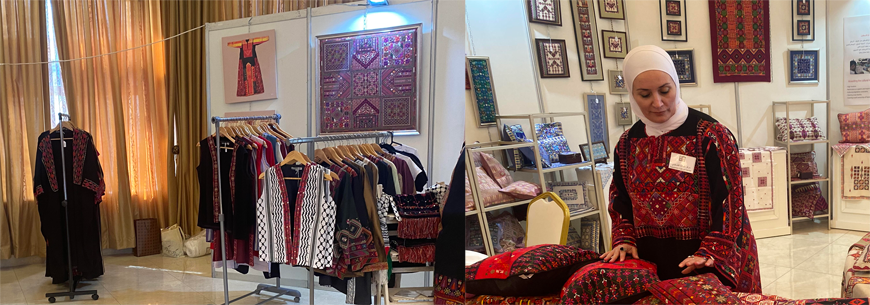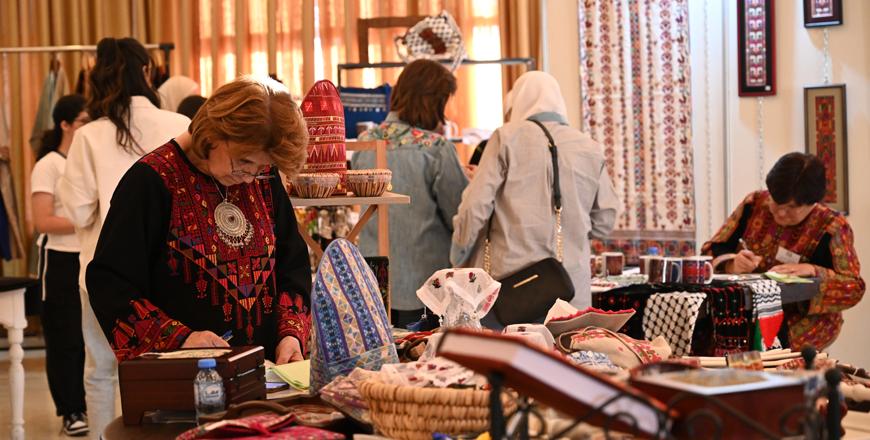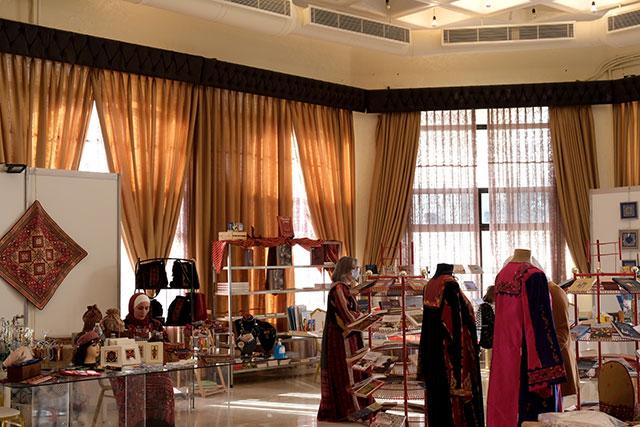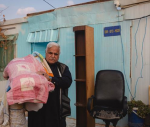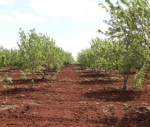You are here
‘Tatreez’ sews together Palestinian pride, financial stability for refugee women
By Anna Rice - Jan 10,2022 - Last updated at Jan 10,2022
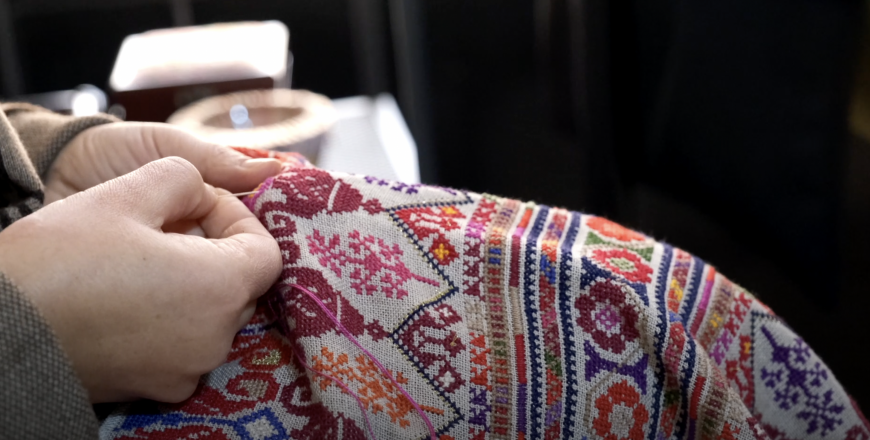
A volunteer at the Palestinian Culture Centre in Amman adds the finishing touches to a piece of traditional clothing in this recent photo (Photo by Anna Rice)
AMMAN — Lelyan Jaber’s father was just two years old at the time of the Nakbeh, or “catastrophe”, when he joined over 700,000 other Palestinians as he fled his home with his parents in search of safety. As Israel was created on Palestinian land, he settled in Jordan, where Jaber now lives with her own family.
To reconnect with the Palestinian heritage left behind in her father’s hometown of Jerusalem, Jaber creates traditional Palestinian embroidery, known in Arabic as “tatreez”, with the Palestinian Culture Centre in Amman, where she has been employed for over 15 years.
The centre, which was originally founded in Kuwait, opened in Amman in 1992 and today celebrates Palestinian heritage and culture through exhibitions, education, food, and the sale of traditional clothing and art.
The centre combines its expression of Palestinian pride with employment opportunities for some of Jordan’s most economically disadvantaged women. The non-profit organisation currently employs over 200 Palestinian women from across the Kingdom to create the embroidery integral to every piece sold, according to Samira Darras, who has volunteered at the centre for over 20 years.
Jaber is one of the women employed to create traditional embroidery for the centre, artwork that she says “shows the soul of Palestine in every thread”.
In an interview with The Jordan Times, she spoke of the pride that her family takes in her work. Jaber’s husband, who is also from Palestine, shows a photo of each piece to his European colleagues upon completion.
He shows these pieces — which can take from a week to several months to finish, depending on the project — to express not only his pride in his wife, but in the traditional art of his homeland, according to Jaber.
“My son is only 13, but he watches me while I do my embroidery in the house and asks me to teach him during the school holidays. My sister who I work with, her young daughter also wants to learn how to make these pieces,” she added.
For most of the women like Jaber who are employed by the centre, this embroidery is their only job. For their work they receive a salary that, for many, is sufficient to send their children to higher education institutions, a feat that would usually be unachievable, Lubnah Budeiri, a volunteer, told The Jordan Times.
For many of these women, this employment is not only a rare financial opportunity, but also the chance to complete this work from home.
According to a 2020 UNRWA report on the effects of the coronavirus pandemic on Palestinian camps in Jordan, 37 per cent of men indicated that their work was disrupted as a direct result of the pandemic.
However, 75 per cent of the women surveyed reported a significant disruption in their work — a figure almost double that of their male counterparts.
As with the rest of Jordan, a large portion of this disruption was a result of the closure of offices, hospitality venues, and other places of work. Fortunately, for the women employed by the Palestinian Culture Centre, work has always taken place at home.
“The women from the camps and across Jordan come to the centre once a week or once a month, depending on the size of their project. They take the equipment and instructions they need before returning home to complete their piece of embroidery,” Mariam Jaber, head of the Palestinian Culture Centre, told The Jordan Times.
“Once they return to the centre, our volunteers apply the finishing touches to each beautiful piece and make them ready to be sold,” Jaber said, adding that, “working from home is the best way for the women and their families”.
According to Lelyan Jaber, working from home has always been positive. “I can work on my embroidery while being surrounded by my children,” she said.
“For other people during Covid, working from home was stressful and new. For me, I was already used to it and have always found creating this embroidery from home helpful in my family life,” she added.
UNESCO recently added this traditional embroidery to its list of intangible cultural heritage, celebrating this integral piece of Palestinian heritage, which, according to Jaber, is not just a piece of embroidery.
In Jaber’s words: “Each piece is a painting, a family of traditional colours. In this traditional embroidery, the threads show soul and beauty. Each piece we embroider shows the Palestinian heritage.”
Related Articles
AMMAN — The annual Palestinian Cultural Exhibition, organised by the Palestinian Cultural Centre (PCC), kicked off on Thursday und
AMMAN — The 13th Palestinian Cultural Exhibition held under the title “My Heritage is My Identity” came to a close Saturday, showcasing the
AMMAN — The 11th Palestinian Cultural Exhibition kicked off on Thursday, showcasing Palestinian heritage through art, clothing and food


